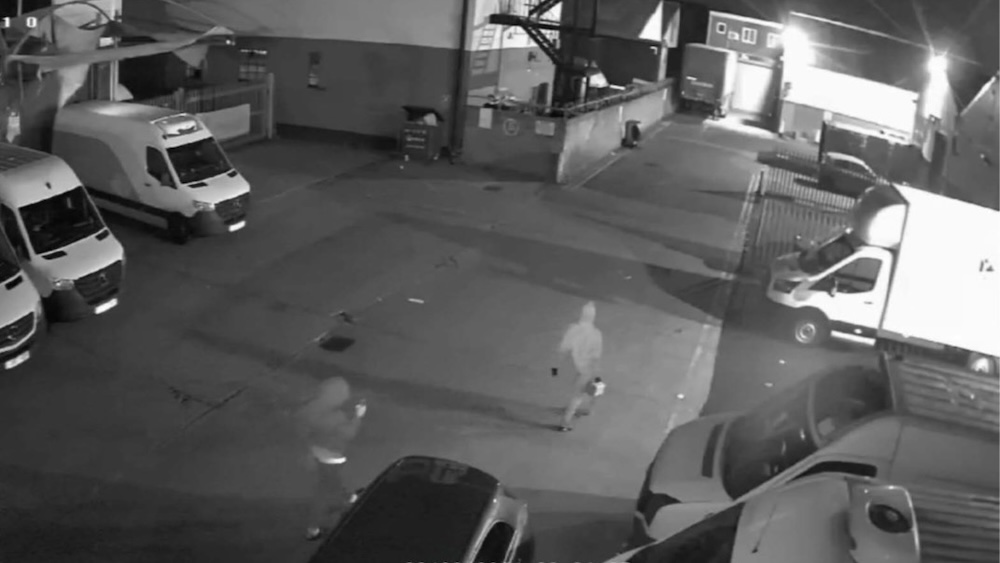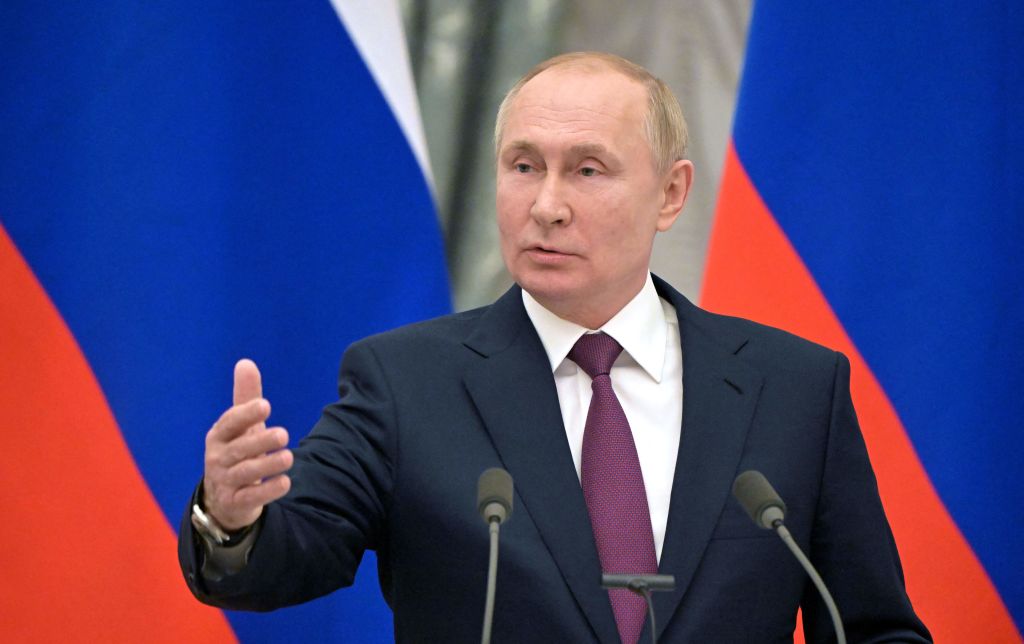How did the Wagner Group recruit young British men for arson attack?
Russian operatives have been using encrypted messaging apps to groom saboteurs across Europe

A free daily email with the biggest news stories of the day – and the best features from TheWeek.com
You are now subscribed
Your newsletter sign-up was successful
Three men have been convicted of aggravated arson at the Old Bailey this week, after causing serious damage to warehouses in east London in an attack orchestrated by Russia's Wagner Group.
The ringleader of the arsonists, Dylan Earl, admitted to working for Russia to commit the attack on the warehouses, which contained equipment destined for Ukraine, and had been in contact with Wagner Group operatives in the days leading up to the fire.
Earl was the only one of those convicted who had been in touch with the Wagner Group, a "powerful group of mercenaries" now effectively controlled by the Kremlin since its leader, Yevgeny Prigozhin, was assassinated in 2023, said Trevor Barnes in London's The Standard.
The Week
Escape your echo chamber. Get the facts behind the news, plus analysis from multiple perspectives.

Sign up for The Week's Free Newsletters
From our morning news briefing to a weekly Good News Newsletter, get the best of The Week delivered directly to your inbox.
From our morning news briefing to a weekly Good News Newsletter, get the best of The Week delivered directly to your inbox.
Designated a terrorist organisation by the UK, the Wagner Group is using its own "playbook" to try to "recruit young British men to carry out sabotage and arson attacks against targets in the UK to help Putin".
What did the commentators say?
The trial revealed the "four stages" of Wagner recruitment: "spot, groom, test and task".
Earl, an "active drug dealer", already used the likes of Telegram to "organise his activities". He was spotted by the group having "accessed numerous pro-Russian Telegram channels" and his "sympathy for Russia was recorded in Moscow". It was then simpler to groom him and begin "probing how useful the potential candidate might be".
"Thousands of messages" were discovered by the police during investigations, providing "extraordinary insight" into how Russia is "paying criminal gangs to conduct espionage and sabotage operations in Europe", said Lizzie Dearden in The New York Times.
A free daily email with the biggest news stories of the day – and the best features from TheWeek.com
"Within 24 hours" the Wagner operatives, working under the Telegram account "Privet Bot", had "issued its first order" and instructed Earl to carry out the arson attack on the "unassuming industrial estate" containing Starlink satellite equipment, after which Earl was quickly able to recruit local criminals to help him for cash rather than ideology.
Before the arson had even been carried out, Privet Bot was already "significantly upping the ante", asking Earl to kidnap Russian exile Evgeny Chichvarkin and burn down his restaurant and wine shop in Mayfair, said Martin Evans in The Telegraph.
While the "plot never came to fruition", Earl's recruitment was an example of how an "increasing number of young men were being drawn to Moscow".
The motivation is largely the "accumulation of wealth and status and the associated lifestyle it would bring", Russia expert Professor Mark Galeotti told the paper. There is a "perverse mystique" to Putin's ideology, one that holds "traditional values" but is also "ruthless and brutal". It can be "very appealing" to "disaffected lads and thugs", he said, with Wagner able to "leverage this perverse appeal to the fullest".
Using Telegram to recruit amateur saboteurs has been "central to Russia's attempts to wreak havoc on the Continent" since its "spy network suffered significant blows" when agents and diplomats were expelled after the start of the war with Ukraine, said Ali Mitib and Fiona Hamilton in The Times. The arson attack in Leyton is the latest in a "string of incidents" including "sabotage, influence, vandalism and assassination attempts" that have "surged" in recent years.
What next?
While Russia goes to "great lengths to reward and retrieve its spies", the "gig economy" recruits it finds via Telegram "can't expect the same", with the Kremlin viewing them as "disposable", said Christian Edwards at CNN.
European authorities have seen greater success in "thwarting" this type of attack and "bringing the perpetrators to justice", after having initially "struggled to combat the new ways" of committing sabotage, and offering a "disjointed response" that "meant Russia could act with impunity".
Incidences may have slowed, but "experts agree" that Moscow will keep "trying for the foreseeable future to enlist saboteurs online" and cause "considerable trouble" to the UK and Europe, said The Standard. Britain should consider that it "has been warned".
Richard Windsor is a freelance writer for The Week Digital. He began his journalism career writing about politics and sport while studying at the University of Southampton. He then worked across various football publications before specialising in cycling for almost nine years, covering major races including the Tour de France and interviewing some of the sport’s top riders. He led Cycling Weekly’s digital platforms as editor for seven of those years, helping to transform the publication into the UK’s largest cycling website. He now works as a freelance writer, editor and consultant.
-
 Is the US in a hiring recession?
Is the US in a hiring recession?Today's Big Question The economy is growing. Job openings are not.
-
 How to juggle saving and paying off debt
How to juggle saving and paying off debtthe explainer Putting money aside while also considering what you owe to others can be a tricky balancing act
-
 Hong Kong jails democracy advocate Jimmy Lai
Hong Kong jails democracy advocate Jimmy LaiSpeed Read The former media tycoon was sentenced to 20 years in prison
-
 France arrests CEO of Telegram
France arrests CEO of TelegramSpeed Read Pavel Durov, the billionaire founder of the messaging app Telegram, was arrested as part of an ongoing judicial investigation
-
 Russia says it has arrested 8 people over Crimea bridge blast
Russia says it has arrested 8 people over Crimea bridge blastSpeed Read
-
 17 killed, dozens wounded in school shooting in Russia
17 killed, dozens wounded in school shooting in RussiaSpeed Read
-
 Who killed the daughter of 'Putin's brain'?
Who killed the daughter of 'Putin's brain'?opinion The sharpest opinions on the debate from around the web
-
 Russia has lists of prominent Ukrainian figures to arrest or kill should Moscow invade, U.S. officials say
Russia has lists of prominent Ukrainian figures to arrest or kill should Moscow invade, U.S. officials saySpeed Read